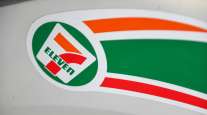Pricey Canadian Diesel Kindles Desire for Aerodynamic Savings
MONTREAL — Two suppliers of aerodynamic fairings at the ExpoCam truck show here said sales of the mileage-enhancing products are popular on both sides of the U.S.-Canadian border. However, a key difference is the approach of the government.
In the United States, the voluntary SmartWay program appears like it will become mandatory through greenhouse gas regulation, which is not an issue in Canada, said Josh Butler, CEO of FlowBelow Aero of Austin, Texas.
In contrast, Canada taxes diesel more heavily than the United States, and the prices generate customers for aerodynamic devices. Butler sees Canada as a growth market for his company and listed as examples his recent deals with three Manitoba-based companies: Bison Transport, Arnold Bros. Transport and a Volvo dealership.
MORE FROM EXPOCAM: Volvo displays VNR | Navistar unveils RH | Mack | Recruiting
FlowBelow’s systems reduce drag that occurs on or around tractor wheels, but Butler said a system for trailers is coming soon.
As for taxes, the Canadian Ministry of Natural Resources said the average national price of diesel was C$1.098 per liter on April 18, or about US$3.117 per gallon. The U.S. average on April 17 was $2.597, and both nations are oil-rich with plentiful supplies of crude — the difference is fuel taxes.
 Desourdy by J.Reiskin/TT
Desourdy by J.Reiskin/TTTranstex is the mirror image, based in Montreal and expanding to the south. The company manufactures trailer skirts in Lebanon, Ind. Guillaume Désourdy, an engineer for the company, said the skirts are made of polypropylene and fiberglass and that Transtex developed a new mounting bracket for the skirts that is more durable and can be installed quicker.
Jason Poupart, the company’s sales director, said Canada is a more mature market for aerodynamic products because of high fuel prices.
“Our customers tell us, ‘We need to reduce that bill,’ ” he said. Poupart said his main Canadian market is new trailer sales because the existing units have a 10-year warranty.
Both Butler and Désourdy mentioned Performance Innovation Transport Group, the locally based research firm that tests trucking technologies, as a tester of their products.
Yves Provencher, a PIT director, said ExpoCam, which ran April 20-22, is important because motor carrier executives who attend are potential new members, and exhibiting vendors might want to get their products tested.
“So this is a great place for us to be,” he said. The group’s members — for-hire and private fleets — are mainly Canadian, but some large U.S. carriers are involved, including Covenant Transportation Group, C.R. England Inc., U.S. Xpress Enterprises and Praxair Inc.
The business model for PIT is to test trucking technologies on behalf of group members and then share those results with the members. This testing helps fleets to evaluate the claims made by vendors.




